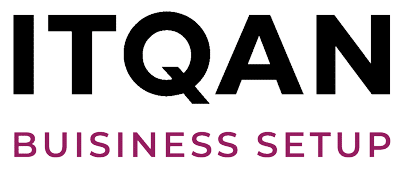Dubai has become one of the most sought-after business destinations in the world, and its Free Zones offer numerous advantages for entrepreneurs and investors. In this article, we will explore the step-by-step process to start a business in Dubai Free Zone, highlighting essential details and providing expert insights.
Whether you are a first-time entrepreneur or an experienced business owner, this guide will equip you with the knowledge and confidence to establish a successful venture in this vibrant city.
Steps to Start a Business in Dubai Free Zone?
If you want to start a business in Dubai free zone then you need to know all the steps required.
1. Understanding Dubai Free Zones
Dubai Free Zones are designated areas that provide foreign investors with tax exemptions, full ownership of businesses, and other incentives to encourage economic growth.
These zones offer a business-friendly environment and specialized facilities for various industries, making them an attractive choice for startups and multinational corporations alike.
2. Choosing the Right Free Zone
Dubai boasts a plethora of Free Zones, each catering to specific industries. Research and identify the Free Zone that aligns with your business type and objectives. Popular Free Zones include Jebel Ali Free Zone (JAFZA), Dubai Multi Commodities Centre (DMCC), Dubai Silicon Oasis (DSO), and Dubai Internet City (DIC).
3. Selecting the Business Structure
Decide on the most suitable business structure for your company. Common options include a Free Zone Company (FZC), Free Zone Establishment (FZE), or a branch of an existing company. Each structure has its own legal implications, so seek professional advice to make an informed choice.
4. Conducting Market Research
Before diving into the business setup process, conduct thorough market research. Understand the demand for your products or services in Dubai and analyze the competitive landscape. This research will help you tailor your business strategy to the local market.
5. Preparing a Business Plan
A well-crafted business plan is essential for attracting investors and guiding your company’s growth. Outline your business goals, target audience, marketing strategies, financial projections, and operational plans in a detailed and comprehensive business plan.
6. Registering the Company
Once you have finalized the Free Zone and business structure, proceed with the company registration process. Submit the required documents, including passport copies, a business plan, and relevant application forms. The Free Zone authorities will review your application, and upon approval, issue the necessary licenses.
7. Obtaining Business Licenses
Obtain the specific licenses required to operate your business in the chosen Free Zone. Depending on your industry, you may need a trade license, industrial license, professional license, or other permits. Ensure compliance with all legal and regulatory requirements.
8. Opening a Corporate Bank Account
To conduct business transactions, you need a corporate bank account in Dubai. Research various banks, compare services and fees, and choose a bank that best suits your business needs.
9. Leasing Office Space or Warehouse
Select a suitable office space or warehouse within the Free Zone. The type and size of the facility will depend on your business activities. Ensure that the location aligns with your business goals and offers convenient accessibility.
10. Hiring Manpower
As your business takes shape, recruit skilled and qualified employees. Register your employees with the relevant authorities and provide them with the necessary visas and work permits.
11. Setting Up IT Infrastructure
In today’s digital age, a robust IT infrastructure is crucial for business success. Invest in reliable hardware, software, and cybersecurity measures to safeguard your business data.
12. Implementing Marketing Strategies
Promote your business and create brand awareness using effective marketing strategies. Leverage digital marketing, social media, and networking events to reach your target audience.
13. Understanding Taxation
Dubai Free Zones offer tax exemptions; however, it is essential to understand the tax implications for your business, especially if you plan to operate outside the Free Zone or engage in international trade.
14. Expanding Your Business
Once your business gains momentum, consider expanding your operations within the Free Zone or into the mainland. Each option has its own benefits and requirements, so conduct thorough research before making a decision.
15. Ensuring Compliance and Governance
Compliance with local laws and regulations is critical for the smooth operation of your business. Stay updated on changes in legislation and adhere to corporate governance standards.
16. Accessing Free Zone Resources
Take advantage of the resources provided by the Free Zone authorities, such as networking events, training programs, and business support services. These resources can help your business thrive and grow.
17. Overcoming Challenges
Starting a business in a new environment can be challenging. Be prepared to face obstacles and learn from them. Seek advice from experienced entrepreneurs and industry experts.
18. Embracing Cultural Etiquette
Dubai is a diverse city with people from various cultural backgrounds. Understanding and respecting local customs and traditions is crucial for building strong business relationships.
19. Navigating Language Barriers
While English is widely spoken in Dubai’s business community, knowing basic Arabic phrases can be beneficial for day-to-day interactions and showcasing cultural sensitivity.
20. Leveraging Dubai’s Strategic Location
Dubai’s strategic location between Europe, Asia, and Africa makes it an ideal gateway for international trade. Explore opportunities to expand your business globally.
21. Funding Options for Startups
Research funding options available for startups in Dubai. Apart from traditional financing, consider angel investors, venture capital, or government-supported initiatives.
22. Emphasizing Customer Service
Exceptional customer service can set your business apart from competitors. Invest in training your staff to deliver outstanding service to your clients.
23. Embracing Innovation and Technology
Stay abreast of technological advancements and adopt innovative solutions to enhance efficiency and stay competitive in the market.
24. Sustaining Growth and Profitability
Focus on sustained growth and profitability by regularly reviewing and optimizing your business processes.
25. Staying Resilient in Uncertain Times
In challenging times, maintain resilience and adaptability. Learn from setbacks and use them as opportunities for growth.
FAQs – Frequently Asked Questions
What are Dubai Free Zones?
Dubai Free Zones are designated areas offering tax exemptions, full foreign ownership, and specialized facilities to encourage business growth.
How do I choose the right Free Zone?
Research different Free Zones to find the one that best suits your business type and objectives.
Can I fully own my business in a Dubai Free Zone?
Yes, foreign investors can have 100% ownership of their businesses in Dubai Free Zones.
Do I need a local sponsor to start a business in Dubai Free Zone?
No, you do not need a local sponsor as foreigners can have full ownership.
What types of licenses do I need?
The licenses required depend on your business activities; it could be a trade license, industrial license, or professional license.
Can I expand my business from a Free Zone to the mainland?
Yes, you can expand your operations into the mainland by setting up a branch or subsidiary.
Conclusion
Starting a business in Dubai Free Zone offers numerous advantages, from tax exemptions to full ownership of your venture. By following the outlined steps and embracing the opportunities available, you can establish a successful and thriving business in this dynamic city.
Remember to stay informed about local laws, cultural norms, and market trends to make the most of your entrepreneurial journey in Dubai.







